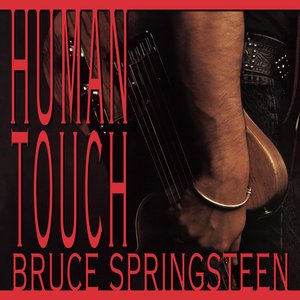Published on Apr 21, 2005
I’ve considered for some time whether
Human Touch might have a double meaning as the title of
Bruce Springsteen’s ninth studio album.
Yes, there’s the implied reference in the title song itself to
sexual healing (see also “Leap Of Faith” on the
simultaneously-released
Lucky Town album), but it may also reflect that this is
among the most human-scaled of Springsteen’s albums. Prior to this
disc, he was always shooting for one impossibly huge target or
another artistically; here, he seems to have no loftier purpose in
mind than simply writing and playing a half-decent album of
guitar-based rock.
That was probably a reasonable approach to take after all the
changes the man had just been through — divorcing his first wife,
marrying backup singer Patti Scialfa, becoming a father and
dismissing his longtime partners in crime the E Street Band. Back
to basics has a certain logic to it under those kinds of
circumstances.
The thing is, nothing about Springsteen’s music has ever been
basic; even the party-hearty frat-boy numbers scattered through
The River had dark shadings, not to mention the emotional
depth and context provided by that album’s more ambitious numbers.
Here, that context seems muted, confused, occasionally even absent.
The album is long (14 songs and almost 60 minutes of music) and
uncharacteristically unfocused.
There’s a mid-tempo white soul number (“Cross My Heart”), an
awkward attempt at redefining manhood (“Real Man”), and a
bass-driven rant — “57 Channels (And Nothin’ On)” — that crosses
the line between angry and goofy several times without reaching a
satisfying conclusion. There’s even a rhythm and blues-styled cut
(“Roll Of The Dice”) that reaches back so hard for past glories
that you detect a hint of desperation, although Springsteen redeems
the song with one great line: “I’m a thief in the house of love /
And I can’t be trusted.”
Ultimately, though, the biggest disappointment here is the way
the rockers fail to ignite. “Gloria’s Eyes,” “All Or Nothin’ At
All” and “The Long Goodbye” feature driving rhythms and push
Springsteen’s muscular guitar playing farther out front than it’s
ever been before, but none of them shows more than a quick flash of
the emotional depth and purpose that’s always been at the heart of
Springsteen’s best work.
The best songs here are the ones where Springsteen remembers who
is he is and takes some chances and/or invests some genuine
passion. “I Wish I Were Blind” is one of Springsteen’s finer
ballads, its initial stately pace building to a strong finish with
help from Righteous Brother Bobby Hatfield’s high harmony vocals
and a magnificent fadeout guitar solo. “With Every Wish” would be a
solid track based solely on Springsteen’s contemplative lyric about
the dark side of wishing, but the addition of Mark Isham’s muted
trumpet is simply brilliant. And “Real World,” “Man’s Job” and the
title track, while they don’t make any great artistic statements,
have strong moments and good energy.
Besides the comparatively superficial approach to lyrics, the
greatest flaw of the album lies in the choices Springsteen and
Bittan make regarding keyboards and production (Bittan received his
first co-producer credit on this disc). More often than not, they
go with electronic keyboards over Bittan’s trademark piano, and the
production values are slicker than any other album in Springsteen’s
catalogue. This gives the music a cold, impersonal sheen that feels
out of sync with Springsteen’s typically earthy, loose, raucous
musical approach.
If Springsteen’s lone goal here was to put together a
half-decent album of guitar-based rock, he hit his mark. In another
artist’s catalogue, this disc might be worthy of notice thanks to
the presence of tracks like “I Wish I Were Blind.” But for an
artist as accomplished as Bruce Springsteen, it qualified as a
significant disappointment, his least notable recording since
Greetings From Asbury Park almost 20 years before and — the
real tragedy — a misstep that nearly obscured the quality of its
far superior companion piece
Lucky Town
.
